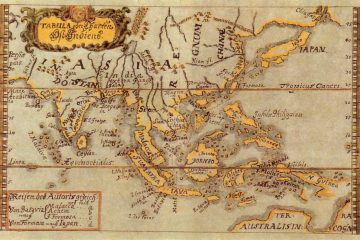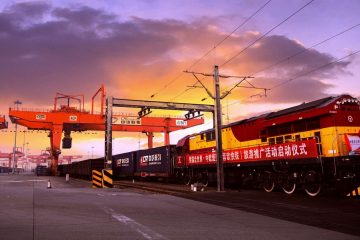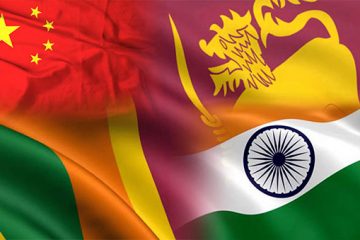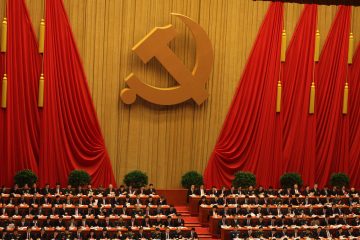
The Scramble for Southeast Asia: ASEAN-Great Power Relations in an Increasingly Contested Region
As the world’s economic and geopolitical centre of gravity shifts eastwards, a scramble for Southeast Asia is underway as the great powers seek to expand and defend their influence in this dynamic region. This renewed great power competition demands that members of ASEAN (Association of Southeast Asian Nations) revise their approaches and rethink their relations to one another and others. Southeast Asia is a crucial node in China’s Belt and Road Initiative (BRI) while the ‘Quad’ of Japan, India, Australia and the US have announced the “Free and Open Indo-Pacific (FOIP)” initiative to balance Beijing’s growing influence. New powers have also begun to make their presence felt in Southeast Asia: South Korean President Moon Jae-in has proclaimed a “New Southern …

Is China’s Belt and Road Initiative Really What Interpreters Make of It?
Without question, the much-debated, mammoth Belt and Road Initiative (BRI), is a brainchild of China’s President Xi Jinping. Without question, Xi Jinping has further centralised his powers and, in the process, China has turned more authoritarian. Yet, understanding this gigantic infrastructure investment initiative simply as a top-down project, directed by an almighty leadership in Beijing, is more than questionable. The BRI is open, plural and ever-changing, and, to a large degree what interpreters, Chinese or otherwise, public or private, make of it. Following the pragmatic attitude which has characterised China’s leadership since Deng Xiaoping’s reforms in the 1980s (‘crossing the river by feeling the stones’), Xi Jinping inaugurated the BRI when a great deal of Chinese overseas investments was already …

WILL HISTORY REPEAT ITSELF WITH PRESIDENT TRUMP’S TRADE WAR WITH CHINA?
The iconic statue of the first American postmaster general Benjamin Franklin greets visitors to the Old Post Office Pavilion in the heart of the US capital: Washington, DC. The edifice is now home to the luxurious and controversial Trump International Hotel on Pennsylvania Avenue at the mid-point between the US Capitol Building and the White House. The hotel webpage invites guests to “share tea” in the Benjamin Bar to discuss “social and economic affairs” as it was the “‘established custom’” in colonial America. It further states that “we agree with Franklin” and delight to “serve tea from China.” The page indicates that Franklin had stated “‘at least a million Americans drink tea twice a day,’” Yet, he was “unable to …

Caught in Indo-Chinese Crosswinds? Charting a Pragmatic Foreign Policy for Sri Lanka
Competition is a natural by-product of major powers navigating an anarchic world. Small states face a dilemma, when caught in the middle between two rivaling major powers. Sri Lanka in particular, has captured international attention as a key battleground between Beijing and New Delhi in their tussle for influence in South Asia. Whilst some scholars argue that the island is a personification of China’s ‘debt trap diplomacy,’ others contend that China’s influence should not be exaggerated, as Chinese lending amounts to less than 15% of Sri Lanka’s total external debt. Concerns over Sri Lanka’s sovereignty have been rife following the US $ 1.12 billion debt-to-equity swap of the Hambantota Port Agreement and the proposed lease of the Mattala International Airport …

China’s Belt and Road – Threat to or Opportunity for the Liberal Order?
In 2013, Xi Jinping announced the idea of building a ‘Silk Road Economic Belt’ across Eurasia. A few months later, he proposed a ‘21st Century Maritime Silk Road.’ Five years on, these two projects have been merged in what is arguably the most ambitious economic and diplomatic enterprise of the 21st century: the Belt and Road Initiative (BRI), or One Belt One Road (OBOR). BRI involves over 80 countries across three continents and along six economic “corridors”, plus an additional route to the Arctic. It encompasses 900 infrastructure and development projects with a combined cost of US$900 billion. The Belt and Road Initiative includes projects such as the China-Pakistan Economic Corridor (CPEC), the trans-Eurasian railways network, Ethiopia’s Eastern Industrial Zone …

Homeland Calling: The Chinese Diaspora and Beijing’s Worrying Embrace of Ethnic Nationalism
Recent years have seen a global resurgence of ethnic nationalism. Yet, political identities based on ethnicity are nothing new. In fact, ethno-nationalist desires reshaped Europe’s borders in the early 20th century with devastating consequences. Despite more than seven decades of relative peace, largely kept in place by the multilateral organizations and deepening global integration, nationalism appears to be returning to the forefront of politics once more. In Europe, politicians and political parties are tapping on anti-immigrant nationalist sentiment. For instance, Italy’s Matteo Salvini has openly advocated solutions which involve marginalizing ethnically-defined “others”. Rogers Brubaker, professor of sociology at UCLA, has coined the term “civilizationism” to describe the rhetoric used by multiple European political parties which claims that the ethno-cultural homogeneity …

Repercussions on the Opposite Side of the World: Why the Cambridge Analytica Scandal matters for Australia
Recent revelations about the alleged misuse of the personal data of millions of Facebook users have dominated international headlines. Reportedly, Cambridge Analytica exploited loopholes in Facebook’s privacy settings to create psychometric profiles for targeted political influence campaigns. Thus far, available evidence suggests that the firm was active all over the globe, but not directly involved in Australian politics. So, why has the Cambridge Analytica scandal got alarm bells ringing, on the opposite side of the world, in Canberra? To understand the significance these events for Australia, one must understand our geopolitical position in the Pacific. Australia has long thought of itself as the United States’ younger sibling. In 2003, US President George Bush memorably labelled Australia America’s “deputy sheriff” and …

The Impact of Brexit on Europe-China Relations
The decision of the United Kingdom (UK) to leave the European Union (EU) in the referendum of June 23rd 2016 has reverberations well beyond Europe as a political and economic shock of substantial proportions. The future relationship of China, both with the remaining member states of the EU and with the UK, is one example of how a domestic political decision is having global ramifications as change ripples through the international system. Overarching any analysis about the impact of Brexit must be a sense of caution about what still remains unknown over the shape of future policy outcomes. Two cross-cutting factors are particularly important: the first is a legal and political one – what will the resulting settlement between the …









